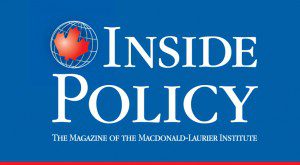 In order to have a serious discussion about health care Canadians need to understand the difference between private supply and private funding, writes MLI Research Advisory Board Member Brian Ferguson
In order to have a serious discussion about health care Canadians need to understand the difference between private supply and private funding, writes MLI Research Advisory Board Member Brian Ferguson
By Brian Ferguson, Oct.13, 2016
Dr. Brian Day’s constitutional challenge to medicare, currently underway in British Columbia, has led to plenty of preaching of age-old arguments on healthcare, repeated to the point where no one but the choirs are listening. Instead why don’t we start by parsing just what we mean by “private health care”?
For a start, we tend to conflate private supply and private funding, even though they’re very different things. Funding refers to who’s paying the bills. Supply deals with who makes the decisions about what services to provide and how to organize their provision.
There’s a reason we tend to confuse them. What we call public hospitals are for the most part technically private, with their own management and boards of directors. But because they get virtually all of their funding from government sources they are effectively controlled by Ministers of Health: technically private, but effectively public. Increasingly the same can be said of GPs’ practices.
The hot supply side topic at the moment is private specialty clinics, whose start-up funding is likely to have come from non-governmental sources, and which really just reflect the fact that technology has moved to the point where many services which once had to be provided in acute care hospitals can today be provided in much less capital-intensive settings.
These clinics are accused of cherry-picking patients, taking the easier cases and leaving the harder ones to acute care hospitals. Why we should want acute care hospitals to be devoting resources to care which could just as well be provided in stand-alone clinics is never made clear: focusing on tougher cases might drive up acute care hospitals’ costs, but that doesn’t seem an unreasonable way to use their resources.
Many services which once had to be provided in acute care hospitals can today be provided in much less capital-intensive settings.
It’s often argued that clinics draw resources away from the public system, but that certainly can’t be true of capital equipment – they clearly add to total system equipment, and if the additional capital eases the constraint the public system often places on things like operating room time, overall system productivity should increase.
On the finance side, by public we tend to mean medicare-funded and by private to mean paid for through employment-based insurance, but there are gradations in-between. Workers’ Compensation cases, for example, are paid for separately from medicare cases and get accelerated access to the system on the grounds that it’s socially beneficial to get injured workers back to work sooner. But only if they’re injured on the job – if they incur the same injury off the job, they have to wait in line. Workers’ Comp cases are paid for out of separate funds collected from employers, but that’s not unreasonable.
Additional capital eases the constraint the public system faces.
Consider a recent news story related to the BC case. A movie stuntman who was treated for a work-related injury at Dr. Day’s clinic, then suffered complications which had to be treated in an acute care hospital. This gentleman’s private treatment seems to have been covered in the first place by insurance which he obtained through the stunt performers’ union. This is private insurance, but since it applies to what is presumably a particularly high-risk group of workers, it’s really just a layer of risk rating of contributions – basically the same kind of thing as Workers’ Comp, but run through a union. This kind of private insurance is really a way of recognizing that certain groups are systematically more likely to impose costs on the health care system than are others. Priced to cover the cost of treatment, it allows the capacity of the system to be expanded proportionally. Any net drawing away of resources from the public system would be a result of policy makers deliberately reducing public capacity as private capacity expanded.
If we’re going to have a serious discussion about health care, we need to distinguish arguments about funding from arguments about supply, and stop using the terms “private” and “public” as curses or mantras. On the funding side, the issue is which services should be funded out of the collective pool (and let’s face it, the answer can’t be “everything”). On the supply side the issue is, what level in the overall system is best able to make decisions about how the production of care should be organized.
When the Chief Statistician of Canada resigned recently, his primary complaint seemed to be the over-centralization of the federal government’s IT capacity. Fundamentally, the issue was whether capacity was better planned and managed centrally, or whether decentralization would allow individual departments to adapt to their specific needs. But if federal IT capacity is too complicated to be managed centrally, mightn’t the same be true of health care capacity?
Brian Ferguson is a professor of economics at the University of Guelph and a member of MLI Research Advisory Board.




